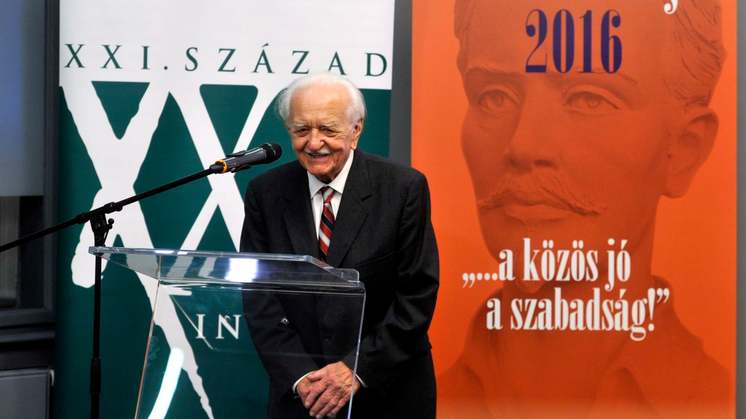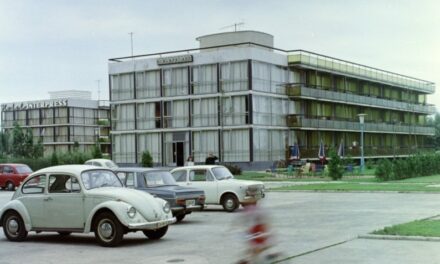reformatus.hu portal reported the sad news . After the system change, he was one of the points of alignment in the society of the fifty-six. An authentically nationally connected, calm, fair to everyone, calmer of internal strife, but a relentless seeker of truth and an educated personality, whose every expression carried weight. From 1996 until his death, he was the president of the Historical Justice Committee.
The biography on Mandiner's website reminds us that László Regéczy-Nagy was not allowed to fight in the 1956 revolution and freedom struggle as a driver of the British embassy, but after his release, he was arrested together with István Bibó and his then friend, Árpád Göncz, in the summer of 1957. He was included in the Bibó trial as a third-rate defendant because he sent to the West the important writings and memoirs of István Bibó and Imre Nagy, which covered up cancerism, and
The true face, aspirations, and purity of 1956 were shown, so the communist dictatorship could not convince the world public of certain lies.
Shortly after his imprisonment, he was questioned as a witness in the Imre Nagy trial, and he had vivid memories of this all the time. In his own trial, he was eventually sentenced to 15 years, but after six years, during the general amnesty of 1963, he and his "parties," as he called them, were finally freed. In his case, this was not self-evident, and in the end, the Secretary General of the United Nations visited the Party Secretary General. During the Kádár era, he did not get a regular job, he lived on translations.
In 1989, he participated in the reburial of Imre Nagy, he supervised the part of the historic funeral event in the Rákoskeresztúr cemetery. He joined the Hungarian Democratic Forum at the dawn of the regime change. At the same time, in 1990, his former comrade-in-arms, Árpád Göncz, who was stationed at the Free Democrats, became the head of department and then his assistant in the Office of the President of the Republic.
Just as he was an important witness to the historical events of 1956-57 through his work at the English embassy and famous friends, he also spent the first years of the regime change in a key position. After the system change, he was one of the points of alignment in the society of the fifty-six;
an authentically nationally connected, calm, fair to everyone, pacifying internal strife, but a relentless seeker of truth and an educated personality, whose every expression carried weight. From 1996 until his death, he was the president of the Historical Justice Commission.
During the Bibó trial, there was certainly a moment when both István Bibó and Árpád Göncz, as well as him, were certain of the fate of the bito. In the end, he "only" had to endure prison, by being arrested as a young married man. Previously, he endured the Second World War and the British prisoner of war, and then the postponement due to his "horthysta-fascist" military past during cancer.
If the British embassy had not thrown him a lifeline, he would not have been able to find a regular job, just as he did during the Kádár era, as a prisoner.
After returning home from the British prisoner of war in 1947, he came to a living faith in the Pasaréti Reformed Church founded and led by Sándor Joó, and this helped him all the way. As in the war, as a charioteer, so also in his battle with old age. Despite his tumultuous fate, he lived a beautiful life, he left us at the age of 97.
the entire article available on the Mandiner website HERE !
Source: Hungarian Nation
Photo: MTI/Attila Kovács













